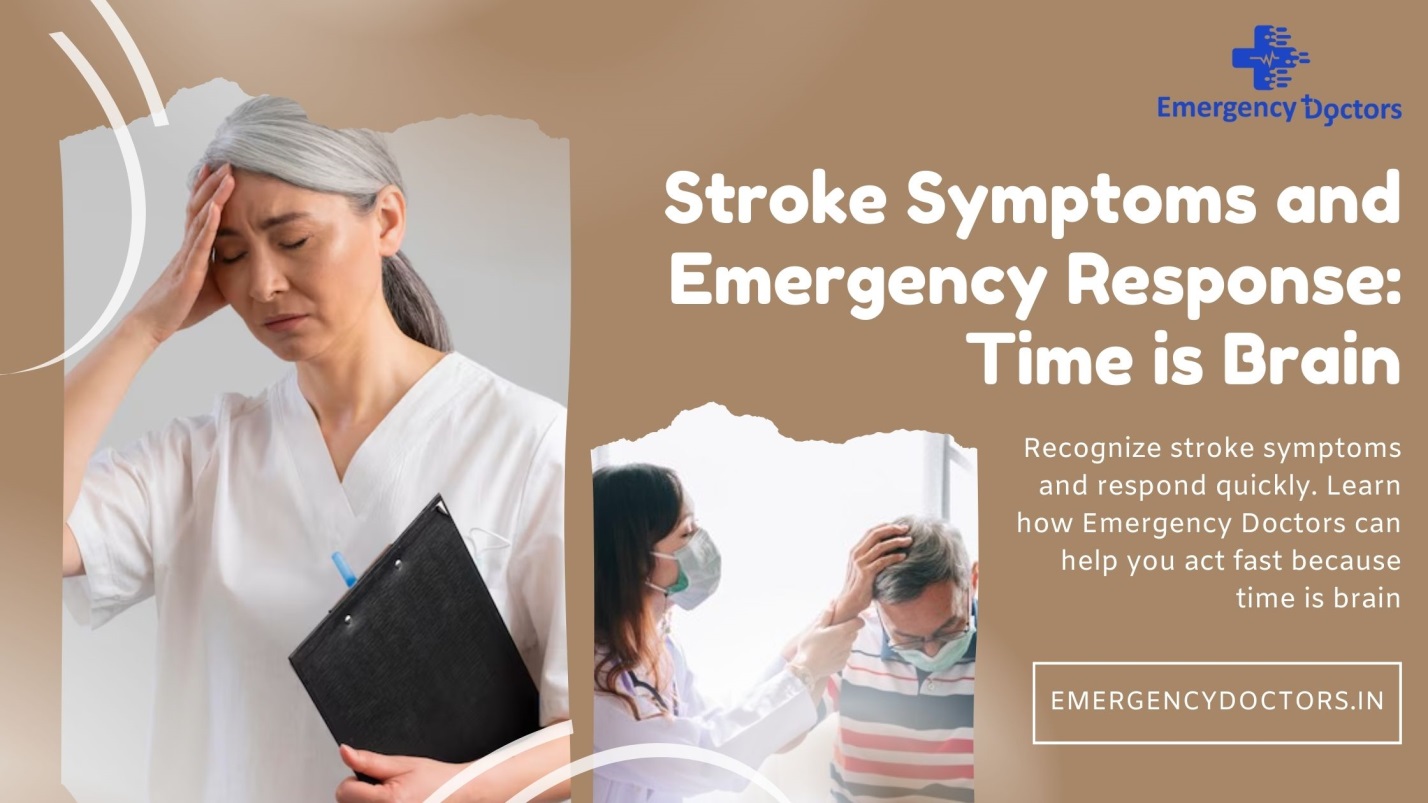
Strokes are among the leading causes of death and disability worldwide. Recognizing stroke symptoms and responding quickly can significantly improve the chances of recovery and reduce long-term damage. The phrase "time is brain" underscores the critical importance of immediate action when a stroke occurs. At Emergency Doctors, we emphasize the need for swift and informed responses to stroke symptoms to save lives and enhance outcomes.
A stroke occurs when the blood supply to part of the brain is interrupted or reduced, depriving brain tissue of oxygen and nutrients. This can happen due to a blocked artery (ischemic stroke) or the leaking or bursting of a blood vessel (hemorrhagic stroke). Without adequate blood flow, brain cells begin to die within minutes, making it essential to recognize symptoms and seek emergency care immediately.
The ability to identify stroke symptoms quickly can mean the difference between life and death. Common symptoms include:
The F.A.S.T. acronym is a helpful tool to remember when assessing whether someone is having a stroke:
When a stroke is suspected, the immediate response should be to call emergency services without delay. At Emergency Doctors, we know that the sooner treatment begins, the better the chances of minimizing brain damage and improving recovery outcomes.
Upon arrival at the hospital, the medical team will quickly assess the patient using imaging tests like CT scans or MRIs to determine the type of stroke. Treatment varies based on the type of stroke:
While immediate response to stroke symptoms is crucial, prevention is equally important. Managing risk factors can significantly reduce the likelihood of experiencing a stroke. Key preventive measures include:
Recognizing stroke symptoms and responding swiftly is vital to reducing the devastating effects of a stroke. At Emergency Doctors, we are committed to educating the public on the importance of immediate action and providing top-notch emergency care to those in need. Remember, when it comes to strokes, "time is brain," and every second counts.